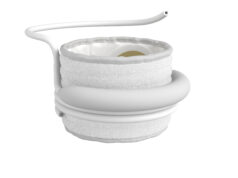 Medtronic has received US Food and Drug Administration (FDA) approval for its Harmony transcatheter pulmonary valve (TPV), the first minimally invasive therapy created to treat patients with a specific type of congenital heart defect of the right ventricle (RV).
Medtronic has received US Food and Drug Administration (FDA) approval for its Harmony transcatheter pulmonary valve (TPV), the first minimally invasive therapy created to treat patients with a specific type of congenital heart defect of the right ventricle (RV).
The Harmony TPV, which is placed inside a patient’s native anatomy during a catheter-based procedure, was designated as a Breakthrough Therapy under FDA’s Breakthrough Device Designation (BDD) programme, an approval pathway intended to help patients receive more timely access to certain life-saving technologies.
“The typical congenital heart disease patient will face a multitude of open-heart surgeries over their lifetime, to continually address issues with their pulmonary valve. Furthermore, congenital heart disease patients require lifelong monitoring, preventive care and specialised treatment all the way from childhood to adulthood,” said Matthew J Gillespie, attending interventional cardiologist, co-director of the Pediatric Valve Center and director of the Cardiac Catheterization Laboratory at Children’s Hospital of Philadelphia, Philadelphia, USA, and principal investigator in the Harmony TPV Clinical Study.
“The availability of the Harmony TPV will allow a broader range of congenital heart disease patients access to transcatheter technology,” said Nina Goodheart, president of the Structural Heart & Aortic business, which is part of the Cardiovascular Portfolio at Medtronic. “Harmony TPV’s novel attributes make it the only non-surgical solution designed to adapt to a wide variety of anatomies for this specific patient population living with congenital heart disease.”
The FDA approval is based on clinical data from the Harmony TPV clinical study that showed excellent safety (freedom from mortality) and effectiveness (acceptable hemodynamic function) at 30 days and six months, respectively. Data from the study also showed patients treated with Harmony TPV experienced no significant reinterventions, reoperations or endocarditis at six months.










